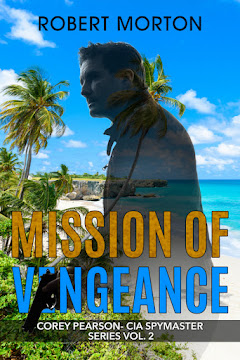OSINT News recalls a CNN report, from the President Bush administration, about U.S. Attorney General John Ashcroft announcing that a U.S. citizen had been arrested and charged with plotting to detonate a "dirty bomb," in Washington, D.C. Dirty bombs do not use a nuclear reaction, but instead use conventional explosives to disperse radioactive materials. After the arrest, CNN Health Correspondent Elizabeth Cohen spoke with CNN anchor Leon Harris about what steps to take after a dirty bomb detonates. It was an interesting interview and revealed useful data for anyone who is unfortunate enough to be near a "dirty" bomb detonation.
| Learn more |
If there has been a dirty bomb detonation, a bomb that emits some sort of radiation, the first thing you're supposed to do is take off your clothes. That may sound strange, but the reason is that if there is any radiation that has gotten on your clothing, or dirt that has gotten on your clothing, you want that off. And once you've taken that off, that is a huge step because you've gotten rid of that surface the radiation might have gotten onto.
The second thing that you're supposed to do is wash up, preferably a shower. If not, then wash hands and face and other areas that might not have been protected by the clothing. In fact, if people come running to a hospital ... the first thing they would do would be to tell you, 'You can't come in here,' and they will theoretically have set up stations outside the hospital to do the kind of decontamination described above.
| Learn more |
In sum, if it happens- clothes off, wash up, use an N-95 mask. Pretty simple! Cohen and Harris discussed how many hospitals are equipped to handle a radiological attack via dirty bomb, with an outbreak of radiation in a major urban area. Harris quoted one report that stated there is only one hospital in the country set up to handle that kind of thing. Cohen said that that was not completely right, because there's a difference between hospitals that have set up an area that's exclusively for that or that specialize in that. All hospitals, if they're accredited hospitals, are supposed to be equipped to deal with this kind of emergency or with a chemical or biological attack. Some, obviously, are going to be better than others. Large urban hospitals would have had training for their doctors and nurses, where smaller rural ones wouldn't have had the ability to have those training programs. But all hospitals are supposed to be able to deal with them.
| Learn more |
Harris asked Cohen about "taking off your clothes is the first thing you do." He wondered if the radiation would go through your clothing anyway. Cohen said that could happen. However, it would still be helpful to take off the clothes. It also depends on the proximity. If a bomb went off, God forbid, right between you and me, shrapnel would go into us and radiation would get in through the shrapnel. But if you're talking about people much farther away, taking off the clothes is a huge step.
| Learn more |
OSINT News believes the threat of radiological terrorism is increasing. This threat has come to the attention of the international community as it became clear that terrorist organizations are seeking nuclear and radiological material to manufacture and use improvised nuclear devices (IND) and 'dirty bombs'. Terrorists are also focusing in on sabotaging
nuclear power facilities. But while nuclear weapons and INDs still remain relatively secure from terrorist access, radiological material is more readily available in large quantities throughout the world.
| Learn more |
| Learn more |
On a grand scale, a nuclear facility could become an RDD. Intentional damage done to a nuclear power plant or other site could release radiation, contaminating the immediate surroundings or even beyond. RDDs of any kind present a potent and effective terrorist weapon because they threaten to expose civilian populaces to radiation, which would create panic out of proportion to the modest number of casualties likely to result from limited
Personal preparation for a radiological attack will, indeed, greatly increase the chances that you, and your loved ones, will survive.
Robert Morton, Ed., Ed.S. is a member of the Association Of Former Intelligence Officers (AFIO). A portion (10%) of this site's ad revenues is donated to the AFIO. The views expressed on this site do not represent those of any organization he is a member of. OSINT News is always looking for different perspectives regarding the Intelligence Community- got a thought, article or comment you'd like to submit? Contact us on the SECURE CONTACT FORM





1 comment:
WE are not only under threat from a radiological bom we are also under threat due to chemical weapons used by so-called Underworld dons....
Thanx Vijaya Mumbai
Post a Comment